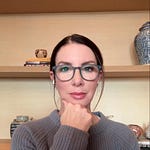For about a year and a half, I worked at the U.S. Holocaust Memorial Museum here in D.C. as a visitor services representative. On my first day, I was walking with my supervisor, who nudged me at one point and said:
"See that guy? That's Henry. Make sure you talk to him."
Henry Greenbaum was born in Poland in 1928. His father passed away early in the war, his mother and two of his sisters were murdered at Treblinka, and three more of his sisters died in a nearby labor camp. Only Henry, his sister Dina, and brothers Zachary and David survived.
Henry survived that labor camp and then time at Auschwitz and then Flossenbürg and had he and his fellow Survivors not been liberated enroute on their death march, he would have likely been murdered at Dachau.
I was awestruck by this man when I met him, and he had no time for that. He didn't want a pedestal. He wanted to genuinely connect with people. He was funny and warm and made the time to get to know staff members. Unsurprisingly, his emotional intelligence was off-the-charts.
Yes, he had a personal mission--he would come every week to chat with visitors for hours at a time, telling his story, over and over again--but he also just wanted the company. He loved to laugh. I was dating another staff member at the time, and he'd jokingly urge us to marry.
One time he came in with a bag of his old neckties and told the staff we were welcome to them. He handed out a few, including one to me. When I came out a few years later, I got rid of just about all my masculine clothing, including all my ties. Except for his. I still have it.
Despite the enormity of his loss and suffering, Henry made the most of his time left. He wanted to enjoy life, he wanted to enjoy the company of others, and he wanted to tell his story to as many people as possible. Why? For the memories of those who didn't survive.
This man could have done whatever the hell he wanted to do for the rest of his life, and no one would have thought lesser of him. And yet, he made it a point to come to the Museum every week and tell his story to more strangers who had never met a Survivor.
Henry knew that his generation was slipping into history and that they would soon all pass on. I think he worried that not having living Survivors around to tell their stories might allow the world to become complacent and fall back into the horrors he witnessed as a young man.
I was very naïve about all this. In 2014, I didn't appreciate his concern nearly as much as I should have. I was working in a world-renowned museum, visited by millions annually, in a national culture with no shortage of media about the Holocaust. How is complacency possible?
Henry, for all his warmth and humor, did not see the world that way. While he strongly believed in the goodness of humanity, he was also acutely aware of how bad things could become again if we weren't consistently educated on those horrors and how they came about.
The Holocaust did not happen overnight or even over a few years. It was the result of a steady drip of poison over MANY years that disenfranchised, then dehumanized, and then murdered millions of innocents. And it could not have been done without the buy-in of ordinary citizens.
Teachers, doctors, lawyers, clergy, shopkeepers, friends, lovers, neighbors, the same kind of ordinary people that each of us see around ourselves every day. The same kind of people as us. We are never too far from that buy-in. It is always looming. Henry knew that.
When I left the Museum in 2014, I was grateful for the experience but at the time, it still didn't hit me how close the threats were as described by Henry. Not just now, not just ten or twenty years ago, but the way that unaccountable hatred is always present and must be checked.
For the vast majority of Americans, we all love to imagine that we would be righteous and stand against hatred. We watch movies or read books about the Holocaust and think we'd have done things differently. But would we? Really?
Yesterday, it was revealed that the McMinn County Board of Education in Tennessee voted, 10-0, to ban "Maus", the iconic, Pultizer Prize-winning graphic novel about the Holocaust, which is geared toward educating children. Banned, supposedly, for nudity and violence.
Somehow, all the other books in McMinn County Schools that feature violence and nudity--Shakespeare and Hemingway, and, yes, the Bible--were somehow not banned. Those are deemed appropriate. Those are okay for children, we're told. Just not the one about the Holocaust.
It's not just the Holocaust, of course. Books on white supremacy, the history of slavery in the United States, LGBTQ narratives, etc. -- these books are being banned by school districts, too, and at a far greater rate in the past year.
Henry died in 2018, and I think of him often. I miss our conversations. But over the past year, my thoughts have been sharply focused on Henry's persistent concern, the one that kept him coming back, week after week, month after month, year after year.
We are never too far away from the process that landslides into those horrors, and I wish that I had asked Henry more questions about that particularly. That's why he was there. I regret not begging for every bit of wisdom he was willing to offer on that.
I have pictures with Henry from when I was in the closet that are just for me. I don't like to show them. And even the photo at the top doesn’t quite do justice to his warmth. But this is where he sat for so many years, telling his story to anyone who would listen.
Love you, Henry.















Share this post